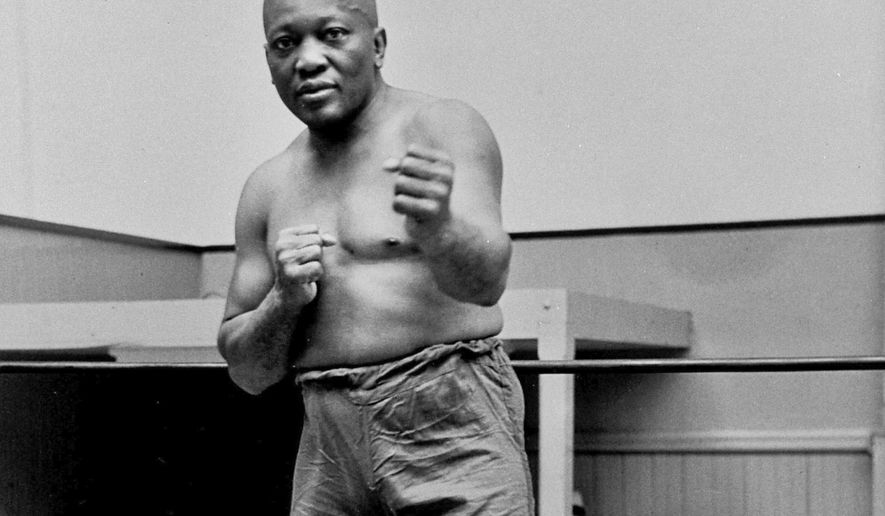ALBUQUERQUE, N.M. (AP) - Toby Smith knew little and cared less about boxing when he came to Albuquerque in 1976. More than anything else in the years that followed, he says, it was the compelling saga of Johnny Tapia’s life and times that captured and held his interest in the Sweet Science.
During his long, highly decorated career as a feature and sports writer at the Albuquerque Journal, Smith wrote about Tapia many times.
Of particular note: a haunting, 1990 story about the Albuquerque boxing legend’s loss of his mother when he was a child, and the emotional damage done.
In 2009, Smith visited Tapia at the Los Lunas Correctional Facility, where the five-time world champion was incarcerated due to a drug-related parole violation, for a story and a question-and-answer session.
It was Smith’s affinity for Tapia and boxing, coupled with his love for his adopted home state, that prompted him to research and write the latest of his 10 books: “Crazy Fourth,” the story of heavyweight champion Jack Johnson’s July 4, 1912 title fight against “Fireman” Jim Flynn in the highly improbable location of Las Vegas, New Mexico.
The book is dedicated “En memoria de Johnny Tapia.”
“Crazy Fourth,” published earlier this year, actually had its beginnings in 1994 – coincidentally, the year Tapia won the first of his five world titles. Smith drove to Las Vegas, looking for information on the Johnson-Flynn fight.
Smith had already written one book about boxing: “Kid Blackie, Jack Dempsey’s Colorado Days,” published in 1988 and an extension of a story he’d written for the Journal. But when he went to Las Vegas in ’94, he said in a phone interview, “I wasn’t thinking about a book at that time. I was just thinking about a column.”
In the years that followed, Smith stayed busy writing for the Journal - he retired in 2010 - and writing several other books, including another sports book, “Bush League Boys: The Postwar Legends of Baseball in the American Southwest.”
Smith’s career at the Journal was interrupted by stays in Romania (two years) and South Korea (three years), where he taught and worked as a journalist.
Finally, though, Smith came back around to Jack Johnson, Jim Flynn and Las Vegas. The choice of a title, he says, was easy.
“The craziness of what was going on in Las Vegas, that’s basically what I wanted to do,” Smith said. “… I tried to get the crazy things in there … weird stuff, all of these things having to do with the fight.”
The cast of characters (an abridged list):
- The Galveston, Texas-born Johnson, the reigning world heavyweight champion and the first black man to hold that belt.
“Nobody wanted to a see a black man (accomplish) anything in 1912, much less Jack Johnson,” Smith said. “He had a fast car, he had fancy clothes, he married white women, he did everything you were not supposed to do. And he did what he wanted to do.”
For all that, Smith said, the ebullient Johnson became popular with the Las Vegas townsfolk during the buildup to the fight.
“He’d drive around Las Vegas and these little communities around Las Vegas and people waved at him,” he said. “Nobody disliked Jack Johnson. That’s the truth.”
- Flynn, a fringe contender at best who already had lost badly to Johnson in 1907. Though “mean as cat dirt,” as described by Smith in the book, he was no match for the champion.
“Johnson just crushed Flynn in that first fight, knocked him silly,” Smith said. “… Nobody ever wrote a book about Jim Flynn, let’s put it that way.”
(Spoiler alert: Johnson won the rematch.)
- Jack Curley, the hapless promoter. If anyone was more overmatched than Flynn, it was Curley.
- Ed Smith, a Chicago sports columnist who moonlighted as a boxing referee - and habitually did so while smoking a cigar.
- New Mexico Gov. William Calhoun McDonald, whose vacillation about allowing the fight to take place almost certainly held down attendance.
- Fred Fornoff, captain of the New Mexico Mounted Police, whose bizarre role in this tale must be saved for a reading of the book.
In approaching his subject, Smith said, it helped that he found similarities between Johnson and Tapia – in particular their mutual habit of smiling at opponents and playing to the crowd.
Once, Smith said, he’d gone to one of Tapia’s workouts and actually found him watching old film of a Jack Johnson fight.
“I’d always made that connection,” he said, “which I think is great.”
—
“Crazy Fourth: How Jack Johnson Kept His Heavyweight Title and Put Las Vegas, New Mexico on the Map.” By Toby Smith. University of New Mexico Press. $24.95




Please read our comment policy before commenting.